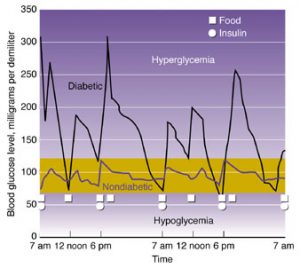What is a Good Blood Sugar Level?
What is a good blood sugar level? This is becoming a question that is being asked more and more often in doctor’s offices and other healthcare facilities all across the globe. In most places heart disease, stroke, and cancer rates are on the decline, but the numbers of new cases of diabetes continue to rise each year. Not long ago, very few people would have ever thought to ask such a question as “what is a good blood sugar level?” but nowadays the question may be the answer to the difference between a long and…


